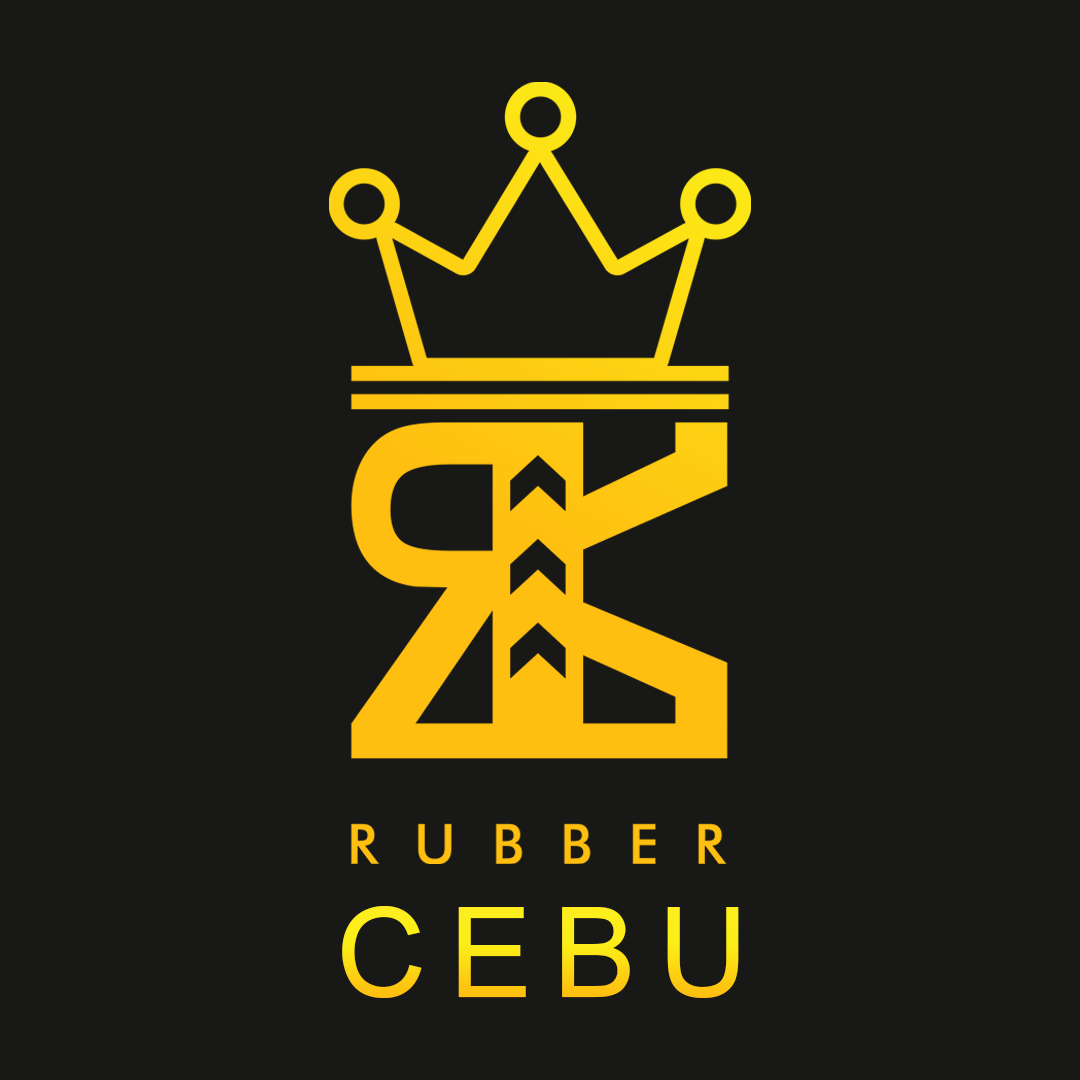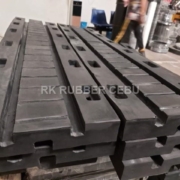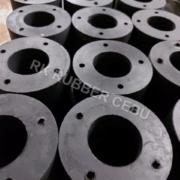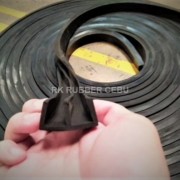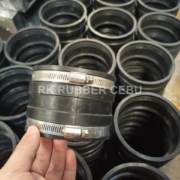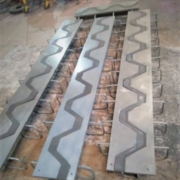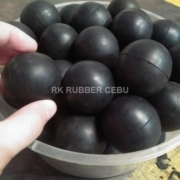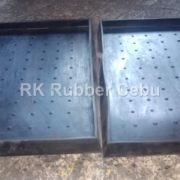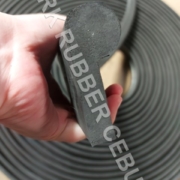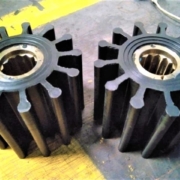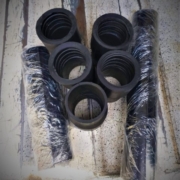In Cebu City, the demand for reliable rubber ball suppliers has been steadily increasing, reflecting the diverse industrial and commercial applications these products serve. From custom designs to a variety of sizes and colors, local businesses are finding innovative solutions to enhance their operations. Understanding the benefits of quality rubber balls is crucial for any enterprise looking to optimize performance. As we explore the nuances of these offerings, it becomes evident that choosing the right supplier can significantly impact efficiency and satisfaction. What factors should you consider when making this essential decision?
Key Points
- Leading rubber ball supplier in Cebu City offering a wide range of high-quality products with custom designs available.
- Various size and color options to meet specific client requirements and branding needs.
- Durable and cost-effective rubber balls designed for industrial applications, ensuring reduced downtime and maintenance.
- Flexible delivery options, including same-day service for urgent needs, with a commitment to timely delivery.
- Technical support available to help customers select the right rubber balls for their specific applications.
What We Offer
As a leading rubber ball supplier in Cebu City, we offer a wide range of high-quality rubber balls that cater to various applications across different industries. Our products are designed to meet the unique needs of our clients, with custom designs available to suit specific requirements. We also provide a variety of color options, allowing customers to choose the perfect color that matches their brand or application.
In addition to custom designs and color options, we offer size variations to accommodate different uses. From small balls used in precision applications to large balls used in industrial settings, our products are designed to provide optimal performance. Our rubber balls are made from high-quality materials, ensuring durability and resistance to wear and tear.
Whether you need rubber balls for industrial, commercial, or exercise purposes, we have the right products for you. Our team is dedicated to providing excellent customer service, ensuring that our clients receive the products they need in a timely and efficient manner. With our commitment to quality and customer satisfaction, we are the go-to rubber ball supplier in Cebu City.
Benefits of Rubber Balls
In the manufacturing and industrial landscape of Cebu City, rubber balls have proven to be a versatile and valuable component, offering numerous benefits across various sectors. Their durability and resistance to wear and tear make them a popular choice for applications that involve repeated impacts or high-stress environments. Rubber balls have undergone rigorous durability tests, showcasing their ability to withstand harsh conditions and maintain their elasticity and performance.
The use of rubber balls in industrial settings also presents a cost-effective solution, reducing downtime and the need for frequent maintenance or replacements of machinery components. Moreover, they offer excellent abrasion resistance, which is crucial in many industrial applications. As the demand for rubber balls continues to grow, there is a need to explore material innovations that can enhance their performance and minimize their environmental impact. By investing in research and development, manufacturers can create more sustainable and efficient rubber balls that meet the evolving needs of various industries. In Cebu City, a reputable rubber ball supplier can provide high-quality products that cater to diverse applications and industries.
Industrial Uses and Applications
Rubber balls play a crucial role in various industrial applications in Cebu City, particularly in the manufacturing and construction sectors. Their durability and resistance to wear and tear make them ideal for use in flow control solutions, reducing the risk of machinery clogging and improving overall efficiency. Additionally, rubber balls are used to reduce noise levels and vibrations in machinery, creating a more stable and productive work environment.
Industrial Sector Applications
Hundreds of manufacturing, construction, and food processing facilities in Cebu City rely on rubber balls to streamline their operations and maintain equipment efficiency. These industrial sector applications utilize rubber balls in various innovative ways, such as in sieving processes, where RTM Sieve Cleaner Rubber Balls efficiently dislodge particles and debris from sieve surfaces, enhancing productivity and reducing downtime.
Rubber ball innovations have significantly impacted these industries, with the development of specialized balls like Polybutadiene Rubber Balls, known for their high elasticity and excellent abrasion resistance. However, there is a growing concern about the environmental impact of rubber ball production and disposal in industrial settings, highlighting the need for further research on sustainable production techniques.
In Cebu City, local manufacturers are adopting eco-friendly production methods and exploring new materials to minimize waste and reduce the environmental footprint of rubber ball production. As the demand for rubber balls continues to grow, suppliers in the city are poised to meet the needs of various industries while prioritizing sustainability and environmental responsibility. By embracing innovative production techniques and materials, Cebu City’s rubber ball suppliers can contribute to a more environmentally conscious industrial sector.
Flow Control Solutions
Effective flow control is a critical aspect of many industrial processes, particularly in manufacturing, construction, and food processing facilities in Cebu City. In these environments, precise control over fluid flow and pressure is essential for efficient operation and preventing costly downtime. Rubber balls play a crucial role in flow control solutions, primarily due to their unique material properties. The elasticity and chemical resistance of rubber balls make them suitable for challenging environments, where they can withstand high pressures and corrosive substances.
In industrial settings, rubber balls are often used to regulate flow dynamics in pipelines, tanks, and other equipment. By carefully selecting rubber balls with specific material properties, engineers can optimize flow rates, reduce turbulence, and prevent clogging. Performance testing is crucial in this context, as it allows manufacturers to validate the effectiveness of their flow control solutions. Local industries in Cebu City, such as those in the Mactan Export Processing Zone, can benefit from the expertise of a reliable rubber ball supplier that provides high-quality products tailored to their specific flow control needs. By leveraging the unique properties of rubber balls, these industries can improve their operational efficiency and reduce maintenance costs.
Machinery Noise Reduction
In what ways can manufacturers in Cebu City’s industrial hubs, such as the Mactan Export Processing Zone, mitigate the distracting and potentially detrimental effects of machinery noise on their operations? Effective machinery noise reduction is crucial for a safe and efficient working environment. One solution is the use of vibration dampening materials, such as rubber balls, to absorb vibrations and reduce noise levels. By strategically placing these materials in machinery components, manufacturers can minimize the transmission of vibrations, resulting in a quieter environment.
Acoustic insulation is another approach to machinery noise reduction. This involves enclosing noisy machinery in sound-absorbing materials to prevent noise from escaping. Additionally, regular machinery maintenance is essential in preventing noise-related issues. By scheduling regular maintenance checks, manufacturers can identify and address potential noise sources before they become a problem.
In Cebu City, manufacturers can source high-quality rubber balls from local suppliers to implement these noise reduction strategies. By incorporating vibration dampening, acoustic insulation, and machinery maintenance into their operations, manufacturers can create a safer, more efficient working environment and improve overall productivity.
Commercial Uses of Rubber Ball
Rubber balls have various commercial uses in Cebu City, including their application in animal care enrichment, industrial noise reduction, and automotive parts. In the animal care sector, rubber balls are used to provide mental and physical stimulation for animals, promoting their overall well-being. Meanwhile, in industrial and automotive settings, rubber balls are utilized for their noise reduction and shock absorption properties.
Animal Care Enrichment
Animal care facilities are turning to ball-style enrichment products to boost exercise and social interaction among their furry and feathered residents. In Cebu City, a rubber ball supplier is catering to this growing demand by providing durable and versatile rubber balls designed specifically for animal care enrichment. These products facilitate exercise, exploration, and bond-forming between animals and caregivers, ultimately enhancing animal behavior and welfare.
The use of rubber balls in animal care enrichment activities promotes physical and mental stimulation, reducing stress and boredom among animals. Caregiver engagement is also encouraged, as staff can participate in play sessions with the animals, fostering a sense of connection and trust. By incorporating rubber balls into enrichment programs, animal care facilities can create a more stimulating and engaging environment for their residents.
In Cebu City, the demand for rubber balls in animal care is on the rise, driven by the growing awareness of the importance of enrichment activities in promoting animal welfare. As a result, local rubber ball suppliers are responding to this demand by providing high-quality products that meet the unique needs of animal care facilities.
Industrial Noise Reduction
Across various industries in Cebu City, excessive noise levels can lead to a range of problems, from decreased productivity to compromised worker safety. To mitigate these issues, industrial noise reduction techniques are employed, and rubber balls play a crucial role in this endeavor. By utilizing sound absorption techniques, vibration damping methods, and acoustic insulation materials, industries can effectively minimize noise levels.
Rubber balls, in particular, are used to absorb vibrations and reduce noise in industrial settings. Their elasticity and resilience make them ideal for applications such as vibration damping and sound absorption. For instance, rubber balls can be used to line pipes and ducts, reducing the transmission of noise and vibrations. Additionally, they can be used as acoustic insulation materials, providing a cost-effective solution for noise reduction.
In Cebu City, industries such as manufacturing, construction, and food processing can benefit from the use of rubber balls for industrial noise reduction. By incorporating rubber balls into their noise reduction strategies, these industries can create a safer and more productive work environment. Local suppliers of rubber balls can provide industries with the necessary materials to implement effective noise reduction solutions.
Automotive Applications
In the pursuit of creating a safer and more productive environment, industries in Cebu City often find innovative ways to utilize materials in various applications. The automotive industry is no exception, and rubber balls have become a valuable component in this sector. In automotive applications, rubber balls are used as liners in ball joints, providing a soft cushioning effect that reduces noise levels and absorbs shock. This is particularly important in vehicles, where a smoother ride can improve overall driving experience and reduce fatigue.
The durability of rubber balls is also a significant advantage in automotive applications. They can withstand the rigors of constant use and exposure to various environmental conditions, making them a cost-effective solution for manufacturers. In Cebu City, suppliers of rubber balls cater to the automotive industry by providing high-quality products that meet the specific needs of this sector. By incorporating rubber balls into their designs, automotive manufacturers can create safer, more comfortable, and more efficient vehicles. The use of rubber balls in automotive applications is a testament to the versatility and effectiveness of this simple yet innovative material.
Products and Materials Used
Several key products and materials are used in the production of rubber balls, which are a staple in various industries, including manufacturing, construction, and food processing in Cebu City. The rubber ball manufacturing process involves blending natural and synthetic rubber, with natural rubber gathered from latex sap of certain trees and synthetic rubber made from petrochemicals. The proportions of these materials must be precise to achieve the desired durability and playability.
Material properties such as hardness, resilience, and elasticity play a crucial role in determining the suitability of rubber balls for specific applications. For instance, industrial-grade rubber balls are made from a blend of natural and synthetic rubber, which provides durability and bounciness. However, these balls may not be as soft and bouncy as standard rubber balls, and may not perform well in high-impact applications.
Environmental considerations are also taken into account in the production of rubber balls, with some manufacturers exploring the use of eco-friendly materials and sustainable production processes. As a rubber ball supplier in Cebu City, it is essential to balance the need for high-quality products with the need to minimize environmental impact.
Why Buy From Us
What sets us apart from other rubber ball suppliers in Cebu City? Our commitment to quality assurance, customer satisfaction, and convenient delivery options make us the go-to supplier for businesses and individuals in the region. Our products have been rigorously tested to ensure they meet the highest standards of durability, elasticity, and performance. We take pride in our customer testimonials, with many clients praising our prompt delivery, competitive pricing, and excellent customer service.
Our quality assurance process involves a thorough inspection of our products before they are shipped out to our customers. We use only high-quality materials, sourced from trusted suppliers, to ensure our products meet the required specifications. We also offer flexible delivery options, including same-day delivery for urgent orders, to cater to the diverse needs of our clients. Whether you’re in the automotive, construction, or food processing industry, we have the right rubber balls for your application. Our experienced team is always available to provide technical support and advice to help you choose the best product for your needs.
Frequently Asked Questions
What Is the Lead Time for Rubber Ball Orders?
Lead time for rubber ball orders is influenced by lead time factors such as production process, order volume, and material sourcing. Typically, it ranges from 7-30 days, depending on complexities and quantities required for production.
Can You Customize Rubber Ball Colors and Sizes?
Yes, we offer custom ball designs with various color options and size variations. This flexibility ensures that our rubber balls meet specific requirements for different applications, enhancing their usability across diverse sectors and enhancing customer satisfaction.
Do You Offer Free Shipping to Nearby Cities?
We provide various shipping options to nearby cities, ensuring efficient delivery areas. However, please note that specific order minimums may apply to qualify for free shipping. Contact us for detailed information regarding these terms.
Are Rubber Balls Suitable for High-Temperature Environments?
Rubber balls exhibit varying heat resistance properties based on their material composition. While some offer adequate durability for high-temperature applications, suitability depends on specific operational conditions; thus, careful selection is essential for optimal performance.
Do You Provide Warranty for Your Rubber Ball Products?
We offer warranty details for our rubber ball products, ensuring product durability and customer satisfaction. Our commitment to quality means you can trust in the longevity and performance of our rubber balls under various conditions.
Conclusion
In summary, the rubber ball supplier in Cebu City stands out for its diverse product range, tailored solutions, and commitment to quality. With a focus on both industrial and commercial applications, these durable rubber balls meet various needs through custom designs and flexible delivery options. Enhanced customer satisfaction is achieved through competitive pricing and excellent service. Choosing this supplier ensures access to innovative solutions that support local industries and contribute to operational efficiency.
